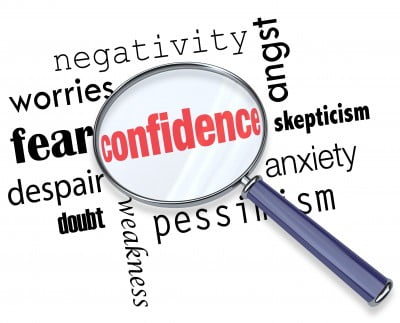by Nidhi Nagpal
 Imagine you are out with your friends or co-workers. Everyone is chatting among themselves. Then someone says: “You have something on your nose.” As you reach to wipe your face, your elbow bumps a glass, which shatters on the table. Now, everyone is silent and staring at you. Readers, you just witnessed an example of how one tends to experience self-consciousness.
Imagine you are out with your friends or co-workers. Everyone is chatting among themselves. Then someone says: “You have something on your nose.” As you reach to wipe your face, your elbow bumps a glass, which shatters on the table. Now, everyone is silent and staring at you. Readers, you just witnessed an example of how one tends to experience self-consciousness.
It is something that cannot be defined through explicit definitions. It’s like you are on stage and the audience is scrutinizing your every step. Rationally, you know that everyone is not watching you, but that’s how you feel. It’s as if a spotlight has been turned on you and the rest of the room lights dimmed.
Being self-conscious can limit your ability to enjoy the moment and express yourself fully. It takes you out of your personal experiences and into what you think someone else is thinking. You put yourself in the place of “object” rather than “subject”. When you are self-conscious, you feel ashamed and embarrassed. You tend to take someone’s criticism and view it as literal, personal and serious.
Here are three strategies that help you redeem your real self by being less self-conscious.
REMIND YOURSELF OF THIS
Remember that people aren’t thinking of you as much as you think they are. Cool, a student at Naropa University recalls her scary encounter with self-consciousness. She had the opportunity to serve tea to a visiting Tibetan teacher. He and his attendants were sitting on the floor. Cool served the tea and when she backed up (it’s a custom not to turn your back to the teacher), she stepped right into a cup of tea.
In that moment, she wanted the earth to open up and swallow her whole. When she recounted the story and her embarrassment to someone else, the person said: “You did? No one even noticed.”
STOP AGREEING WITH YOUR NEGATIVE THOUGHTS
One of the reasons people become self-conscious is because they worry that others will only confirm their own negative thoughts. It’s like if someone says you’re a purple elephant, you likely won’t feel insulted. That’s probably because there is no agreement that you have, that says, I believe that I might be a purple elephant and that is a bad thing.
But if someone says that you would look better if you lost 15 kgs and get rid of your double chin, you would surely get upset. You might even agree with them. That’s because somewhere in your mind you think that you have a double chin and that having a chin is bad. So, when someone points that out, or you see an advertisement with a model donned in a perfect figure, your mind comes up with ‘I am ugly’ and you agree with it.
The key is to stop agreeing with your thoughts. This doesn’t mean arguing or resisting them, but to let the negative thoughts just naturally flow and consequently, they will vanish from sight even before you pay attention to them.
If someone said ‘you are a purple elephant,’ you wouldn’t argue about how you really aren’t and how even purple elephants have feelings. You would just shrug and say ‘OK, whatever.’
Take this same approach-which is called “a mental shrug “- with your brain: “OK, that’s what my mind is doing, whatever.”
WORK ON ACCEPTING YOURSELF
It is a well acknowledged fact that people who accept themselves unconditionally as a worthwhile human in spite of their faults and imperfection do not experience the stress of self-consciousness.
For instance, if you accept yourself and someone calls you “stupid”, instead of internalizing their insult, you realize they are just trying to be antagonistic. Rather than engaging the person, you might say: “I never thought of it that way. I don’t know what to tell you,’ and walk away.”
The next time you find yourself dwelling on someone’s criticism, you should ask yourself: “What difference does it make?” If your answer is wholeheartedly “none” then BRAVO! These techniques have worked for you and you have over powered the devil-self-consciousness.
Self- respecting people do not evaluate themselves on the basis of external appearances. Our homework would be to allow others to believe whatever they want and see if anyone faints.

































